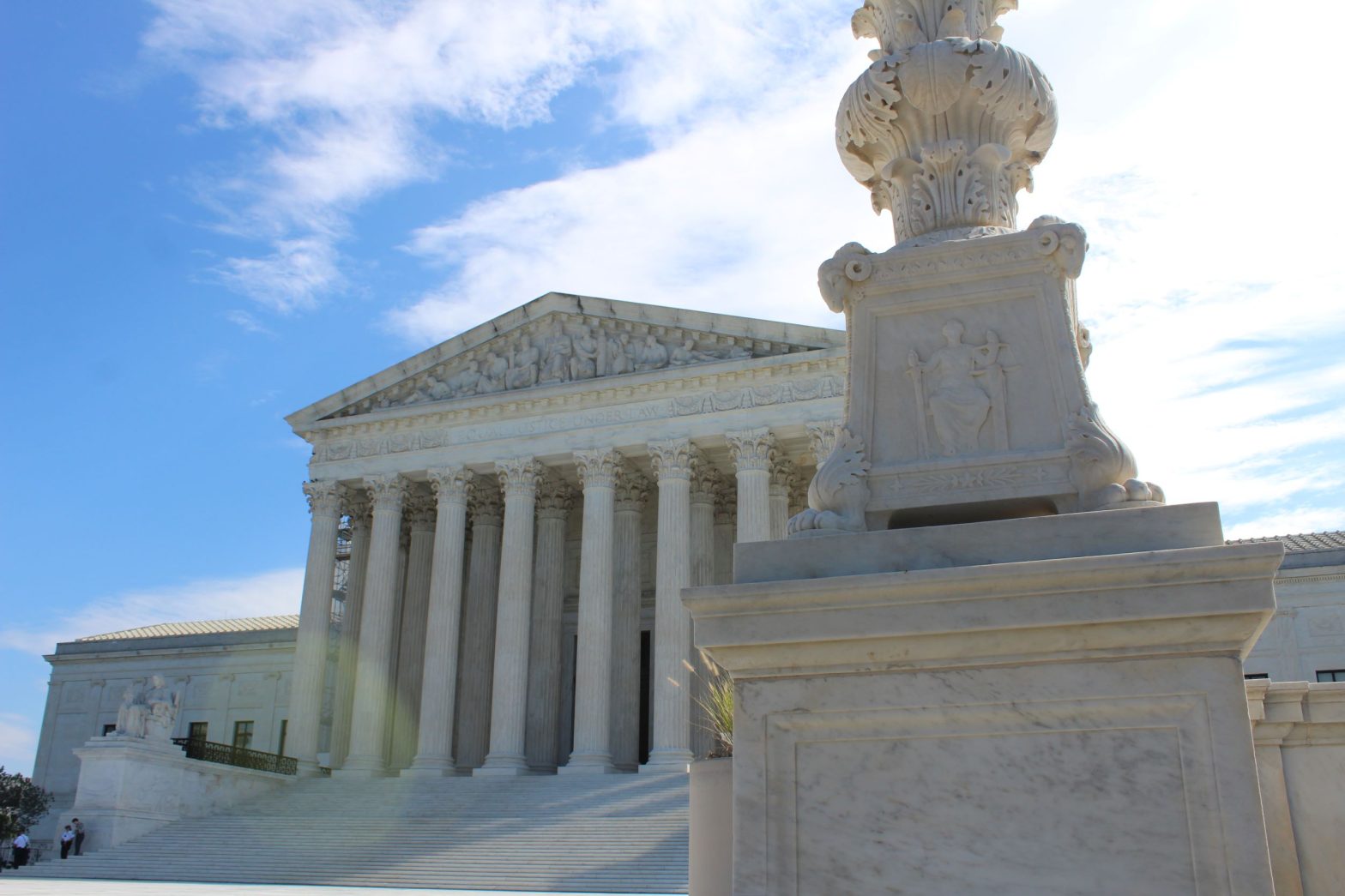Justices to Hear South Carolina Redistricting Case on Wednesday

WASHINGTON — The Supreme Court will hear arguments on Wednesday over the constitutionality of South Carolina’s new congressional district map, which allegedly moved Black voters out of one district to make it more hospitable to Republicans.
The focal point of claims of an unlawful racial gerrymander is South Carolina’s 1st Congressional District, currently represented by Rep. Nancy Mace, R-S.C.
Following the 2020 Census, state lawmakers had to redraw its seven congressional districts so that each contained a roughly equal population of about 730,000 people.
Among other things, the latest census revealed the 1st Congressional District, which encompasses a number of South Carolina’s fastest-growing coastal communities, was overpopulated by about 88,000 persons, while the neighboring 6th Congressional District, a so-called “opportunity” district under the Voting Rights Act currently represented by Rep. James Clyburn, D-S.C., was underpopulated by about 85,000 residents.
Instead of simply moving the district lines to equalize the number of people in each district, Will Roberts, a cartographer on the state Senate’s staff, moved 53,000 residents from the 6th Congressional District to the 1st Congressional District, then moved 140,000 residents from District 1 to District 6.
As a result of these moves, the state Legislature was able to maintain a 17% Black voting age population in the 1st District, while moving fast-growing and increasingly affluent Beaufort and Berkeley Counties entirely within its borders.
Both moves tended to favor Republican candidates.
Republican Gov. Henry McMaster signed the redistricting plan into law in January 2022.
Shortly thereafter, the South Carolina State Conference of the NAACP and Taiwan Scott, a Black voter who lives in the district, sued, arguing that the 1st Congressional District and two others, the state’s 2nd and 5th Congressional Districts, were unconstitutional racial gerrymanders that were drawn to intentionally dilute Black voting strength.
In January, a three-judge panel ultimately ruled against the plaintiffs in federal court in regard to the latter two districts, but ruled in their favor when it came to the 1st Congressional District.
In doing so, it found that race was the “predominant motivating factor” in the drawing of the district’s lines and it enjoined the state from holding elections with the district in its current configuration.
Under federal law, any decision by a three-judge panel is appealable directly to the Supreme Court, and the court has to accept the case and rule on the merits.
South Carolina availed itself of that right, setting the stage for Wednesday’s hearing.
During arguments, counsel for the state is expected to argue the three-judge panel erred when it concluded that race was the primary motivation behind how District 1 looks on the current map.
They will also contend the lower court made several legal mistakes, particularly when it “wrongly discarded” the Legislature’s defense that the district lines being disputed were drawn based on political considerations.
They will further argue the panel failed to require the plaintiffs to present an adequate alternative map or to prove that race, rather than politics, was the predominant consideration when District 1 was drawn.
The state will also argue that the panel made “clear factual errors” during its deliberation, including “its regrettable attempt to impugn the experienced nonpartisan mapmaker.”
Further, it will claim that the court wrongly relied on “putative expert analyses that ignored multiple traditional [districting] criteria.”
The 14th Amendment’s equal protection clause prohibits state legislatures from engaging in racial gerrymandering. This means that state legislatures cannot use race as an unjustified and predominant factor in drawing legislative districts.
The clause also prohibits a state from engaging in intentional “vote dilution,” that is, “invidiously minimizing or canceling out the voting potential of racial or ethnic minorities.”
Particularly germane in this case, the clause prohibits legislatures from packing racial or ethnic minorities into districts where they constitute an “excessive” majority and from “cracking” racial or ethnic minorities among districts so that they “constitute an ineffective minority of voters.”
In order to establish a vote-dilution claim, the plaintiffs in this case, the NAACP chapter and Scott, must show with direct or circumstantial evidence that race was a motivating factor in the Legislature’s action and that the Legislature intentionally diluted the voting strength of Black voters.
In order to prevail on their racial gerrymandering claim, the plaintiffs must establish that the Legislature used race as the predominant factor in drawing a district.
A ruling in the case could come as early as January. If the high court rules South Carolina’s 1st Congressional District was racially gerrymandered, state lawmakers may be forced to redraw the 2024 congressional map before the election next fall.
If the justices, in the alternative, side with South Carolina, the ruling could invite other states involved in pending gerrymander-related lawsuits to try to explain away their consideration of race by claiming that redistricting was based on politics.
Either way, the court’s decision could have a profound effect on the 2024 election, particularly in regards to who controls the House beginning in January 2025.
The court’s most recent ruling in a case involving racial gerrymandering was handed down in June.
In that case, Allen v. Milligan, the court in a 5-4 ruling affirmed a lower court decision that required Alabama to draw a second congressional district in which racial minorities could elect a candidate of their choice.
Allen, however, differs from the current case because it challenged Alabama’s redistricting scheme under Section 2 of the Voting Rights Act, not the equal protection clause, so it may not be the best barometer by which to forecast the outcome of Wednesday’s hearing.
Dan can be reached at [email protected] and @DanMcCue
























